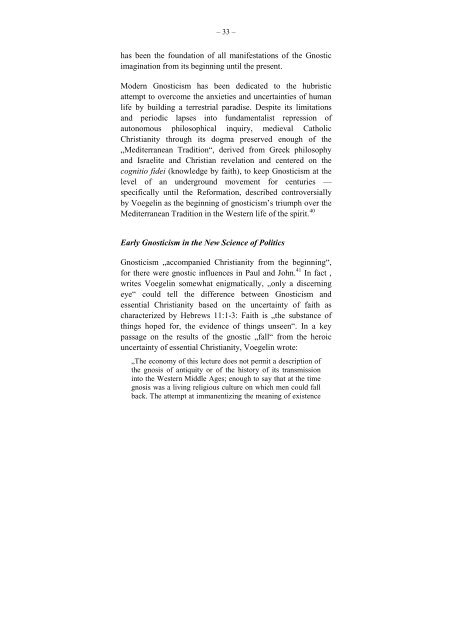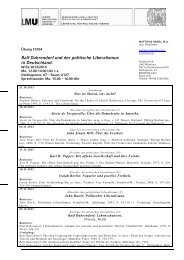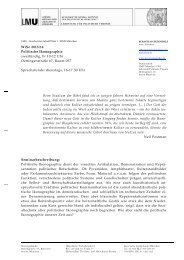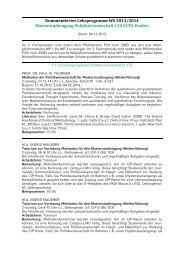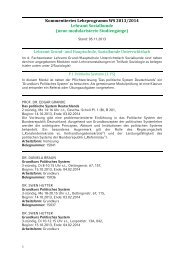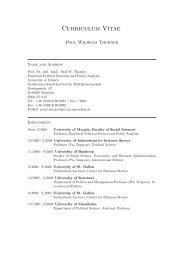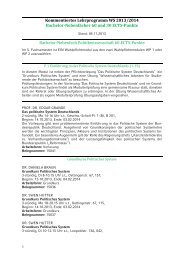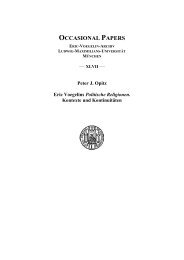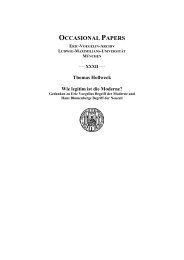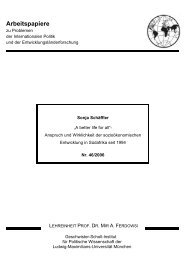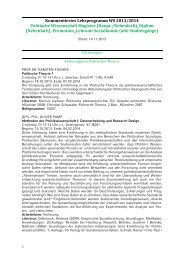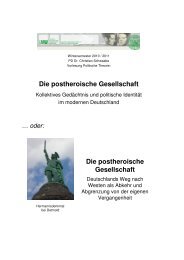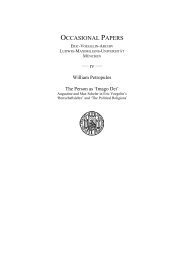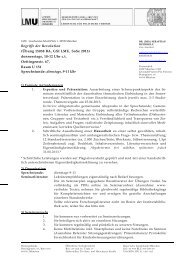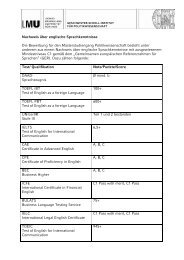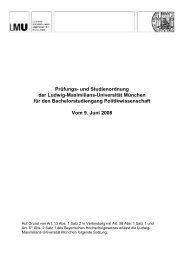Eric Voegelin.pdf - Geschwister-Scholl-Institut für Politikwissenschaft
Eric Voegelin.pdf - Geschwister-Scholl-Institut für Politikwissenschaft
Eric Voegelin.pdf - Geschwister-Scholl-Institut für Politikwissenschaft
You also want an ePaper? Increase the reach of your titles
YUMPU automatically turns print PDFs into web optimized ePapers that Google loves.
– 33 –<br />
has been the foundation of all manifestations of the Gnostic<br />
imagination from its beginning until the present.<br />
Modern Gnosticism has been dedicated to the hubristic<br />
attempt to overcome the anxieties and uncertainties of human<br />
life by building a terrestrial paradise. Despite its limitations<br />
and periodic lapses into fundamentalist repression of<br />
autonomous philosophical inquiry, medieval Catholic<br />
Christianity through its dogma preserved enough of the<br />
„Mediterranean Tradition“, derived from Greek philosophy<br />
and Israelite and Christian revelation and centered on the<br />
cognitio fidei (knowledge by faith), to keep Gnosticism at the<br />
level of an underground movement for centuries —<br />
specifically until the Reformation, described controversially<br />
by <strong>Voegelin</strong> as the beginning of gnosticism’s triumph over the<br />
Mediterranean Tradition in the Western life of the spirit. 40<br />
Early Gnosticism in the New Science of Politics<br />
Gnosticism „accompanied Christianity from the beginning“,<br />
for there were gnostic influences in Paul and John. 41 In fact ,<br />
writes <strong>Voegelin</strong> somewhat enigmatically, „only a discerning<br />
eye“ could tell the difference between Gnosticism and<br />
essential Christianity based on the uncertainty of faith as<br />
characterized by Hebrews 11:1-3: Faith is „the substance of<br />
things hoped for, the evidence of things unseen“. In a key<br />
passage on the results of the gnostic „fall“ from the heroic<br />
uncertainty of essential Christianity, <strong>Voegelin</strong> wrote:<br />
„The economy of this lecture does not permit a description of<br />
the gnosis of antiquity or of the history of its transmission<br />
into the Western Middle Ages; enough to say that at the time<br />
gnosis was a living religious culture on which men could fall<br />
back. The attempt at immanentizing the meaning of existence


